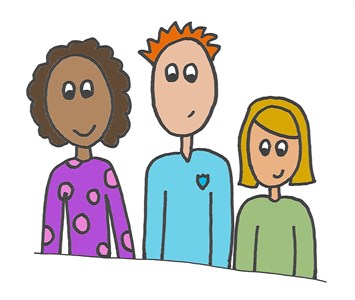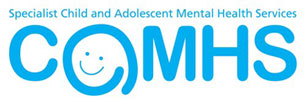
What is CAMHS ID?
CAMHS ID stands for Child and Adolescent Mental Health Services for Children with Intellectual Disabilities (this used to be called Learning Disabilities). We support children and young people aged 0-19 and their families with a wide range of difficulties.
What does CAMHS ID do?
We offer assessment and intervention to children and young people and their families who have an intellectual disability who are presenting with emotional, mental health or behavioural distress.
Who works at CAMHS ID?
Our team includes:
Lindsey – Team Manager
- Rachel – Senior Practitioner
- Lucy – Clinical Psychologist
- Emily – Occupational Therapist
- Nathaniel – CAMHS Nurse
- Sri – Consultant Psychiatrist
- Amy – Nurse Apprentice
- Ryan – Nurse Apprentice
- Sharon – Team Administrator
- Olwyn – Medical Secretary.
We look forward to meeting you.
How do I get an appointment at CAMHS ID?
Referrals usually come to us from your School Nurse, your GP, or other professional and then we will invite you or your parent for a first appointment to learn more about you.
What happens on my first appointment?
Lots of children and young people and their families feel worried before meeting a member of the team from CAMHS ID because it is something new. At the first appointment often we will meet your parents or carers on their own; we also sometimes also gather all of the people involved in the care together to try and coordinate approaches and work together. We will then meet you with your parents/carers at a place that suits you.
What things may you be able to offer?
Assessment and intervention ('intervention' is another word for the ways we support you) will be community based. Interventions will be individually tailored to meet the mental health needs of the child and family, taking into account their age, developmental level and culture. Interventions will be devised in partnership with child and family. The best outcomes for children are when families and their wider support networks are fully engaged and invested and working in partnership with our team.
The things we might do to help support children and families are:
 Assessment of intellectual functioning
Assessment of intellectual functioning - Assessment of social and adaptive functioning
- Neurodevelopmental assessments
- Nursing assessment
- Clinical observations
- Clinical interviews
- Review of health, education and social care records
- Feedback sessions
- Multi-agency meetings
- Education sessions
- Parenting advice
- Adapted cognitive behaviour therapy
- Sensory processing assessments.
What kind of approaches do you take?
We use lots of child-centred approaches:
- Provide education – with regard to new diagnosis and emerging mental health problems, with further work as necessary
- Family work – helping families to understand their children’s behaviour, facilitating the development of parenting skills, enhancing family coping mechanisms and promoting appropriate play, occupation and communication
- Specialised individual therapies – behavioural systemic and psychodynamic approaches adapted for use with intellectual disabilities e.g. modified Cognitive Behavioural Therapy, family work, Occupational Therapy, Sensory Processing Assessments and interventions, Social Stories and input to sibling and parenting groups
- Pharmacological therapy used sometimes in complex conditions
- Liaising and joint working.
We work closely with other people involved with your child, with your consent, to ensure a smooth co-ordinated approach.
Liaison, consultation and training are forms of indirect work undertaken by the team. Partnership with other agencies will allow smooth cooperation of the multi-professional network through a co-ordinated approach.

